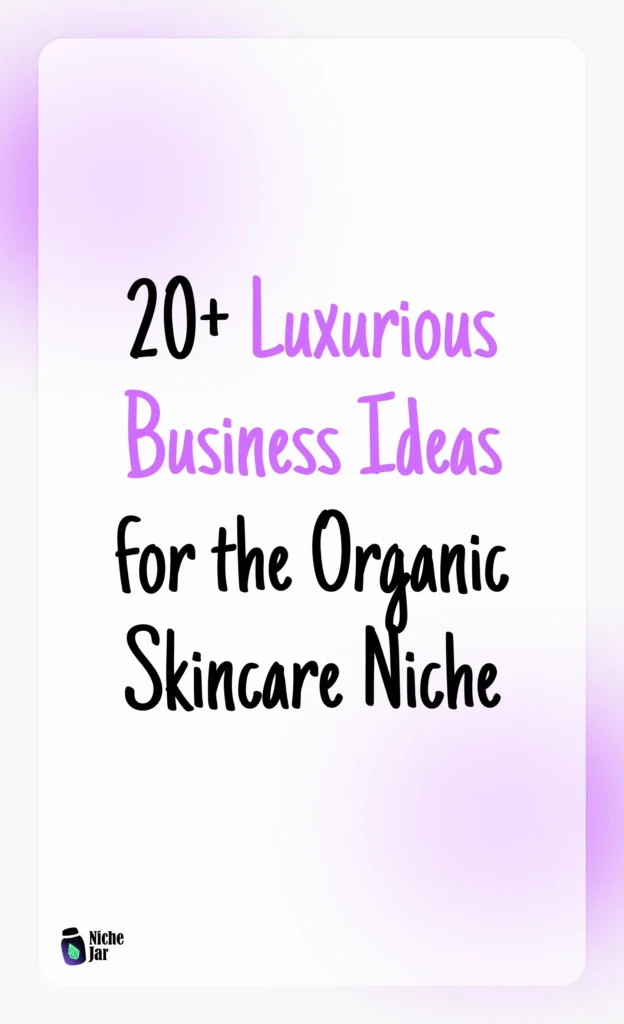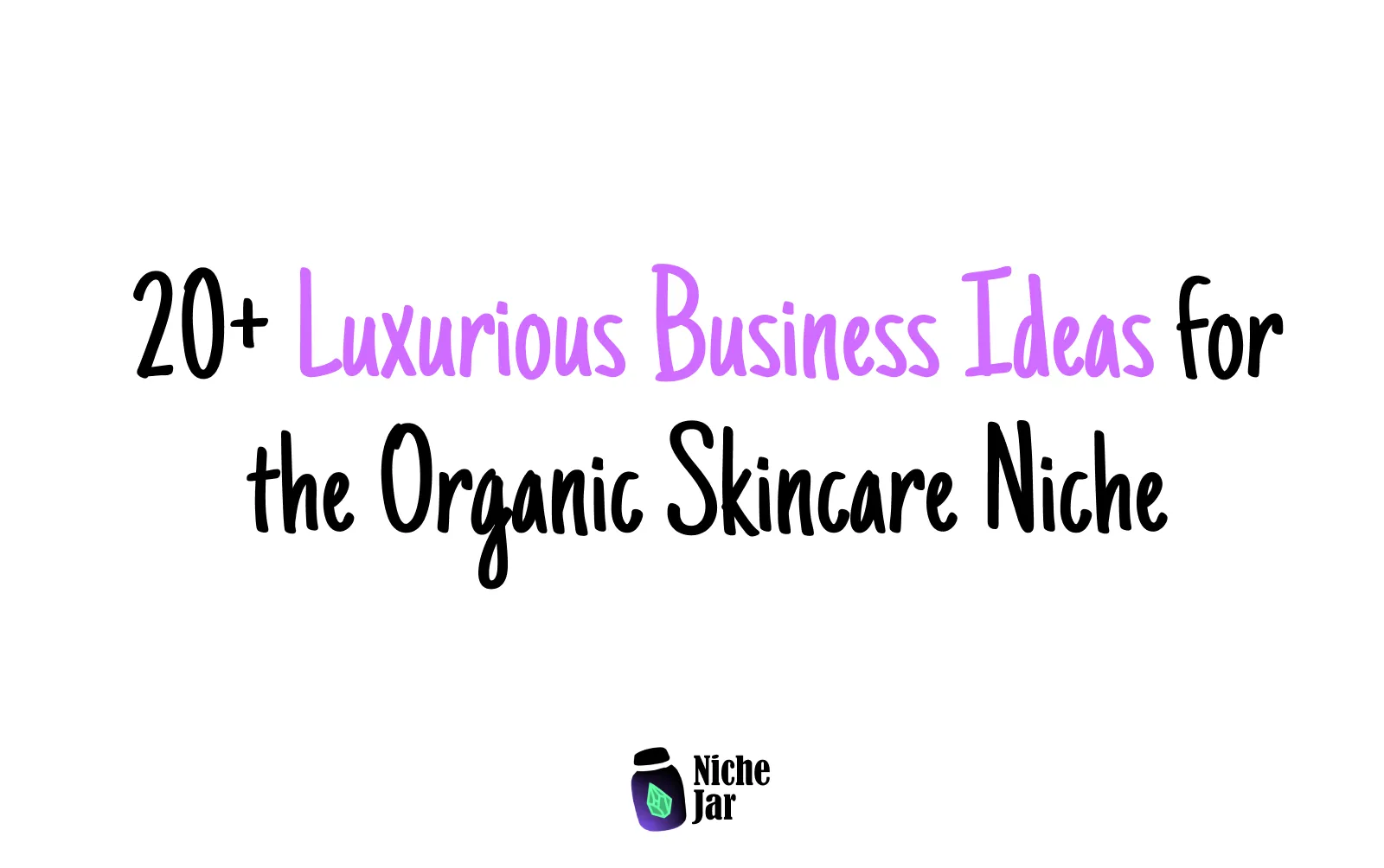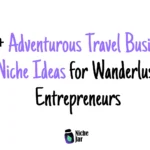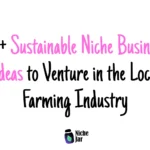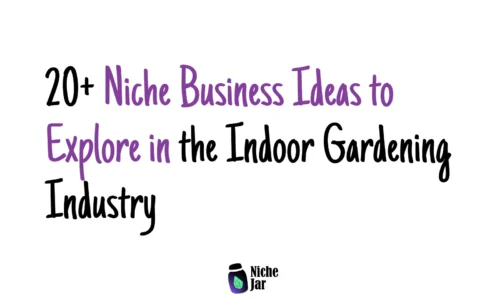- Senia
- 0 Comments
- 982 Views
Have you ever wondered how everyday people can turn a love for natural skincare into a profitable business? 20+ Luxurious Business Ideas for the Organic Skincare Niche might be the inspiration you need. From small home-based ventures to upscale brands, there are opportunities for almost anyone willing to learn and experiment carefully.
The organic skincare market has grown remarkably in recent years, and from what I’ve seen, there’s a real chance for ordinary people to carve out a profitable niche. 20+ Luxurious Business Ideas for the Organic Skincare Niche can help anyone curious about turning a passion for natural beauty into income. The global shift toward wellness, sustainability, and clean ingredients has created space for creative entrepreneurs to launch meaningful, money-making ventures—even from home.
Organic skincare isn’t just a trend—it’s a lifestyle choice for many consumers who care deeply about what they put on their skin. For someone starting out, this means a devoted, growing audience and opportunities to differentiate by quality, luxury, and personal touch. Whether you want to craft your own face serums, design eco-friendly packaging, or offer exclusive subscription boxes, there’s a pathway to monetization that doesn’t require a big corporate budget.
In this post, I’ll walk you through 20+ luxurious business ideas for this niche, sharing practical steps, potential challenges, startup costs, and ways to make money. I’ll also offer humble insights from real-world examples and case studies that show success is possible, even if you’re starting small. there’s no single “perfect” path, but by starting small and staying consistent, you can build something valuable.
Here’s what we’ll cover:
- Handmade organic skincare products
- Skincare subscription boxes
- Luxury skincare e-commerce stores
- Organic spa or retreat services
- Custom formulation services
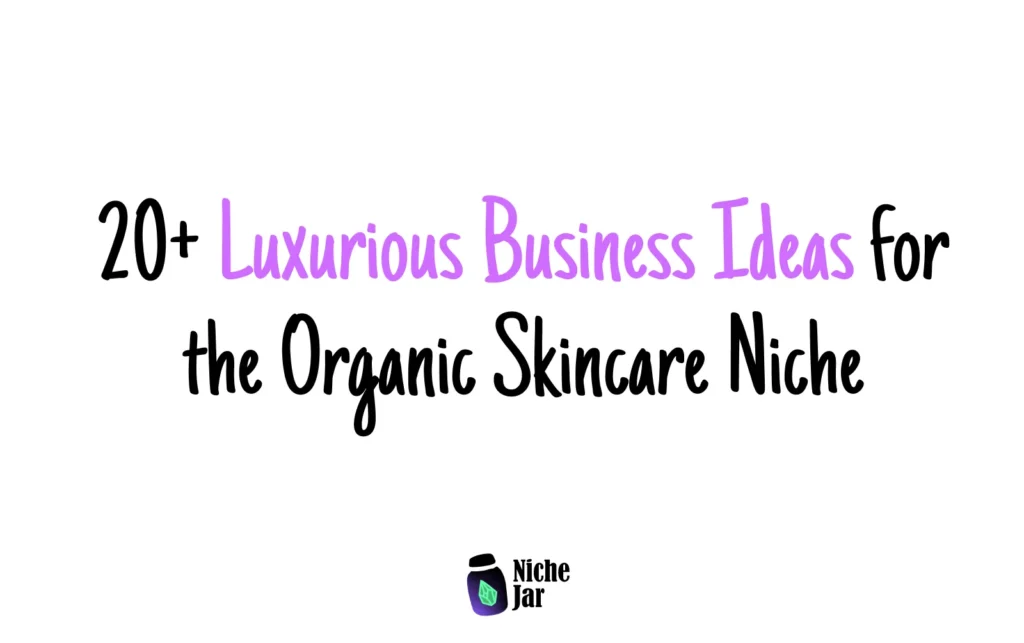
1. Organic Face Serum Line
Why this works: Serums are high-value skincare items. Customers are willing to pay premium prices for targeted results such as hydration, brightening, or anti-aging.
Steps to start:
- Research ingredients like rosehip oil, vitamin C, or hyaluronic acid alternatives.
- Work with a certified formulator to ensure safety.
- Package in glass dropper bottles for a luxurious feel.
- Build an online shop with before-and-after testimonials.
Startup costs: $3,000–$8,000 (formulation, packaging, branding).
Monetization: Direct sales, subscription bundles, wholesale to salons.
Challenge: Standing out in a crowded market.
Solution: Focus on one skin concern (e.g., organic serum for acne-prone skin).
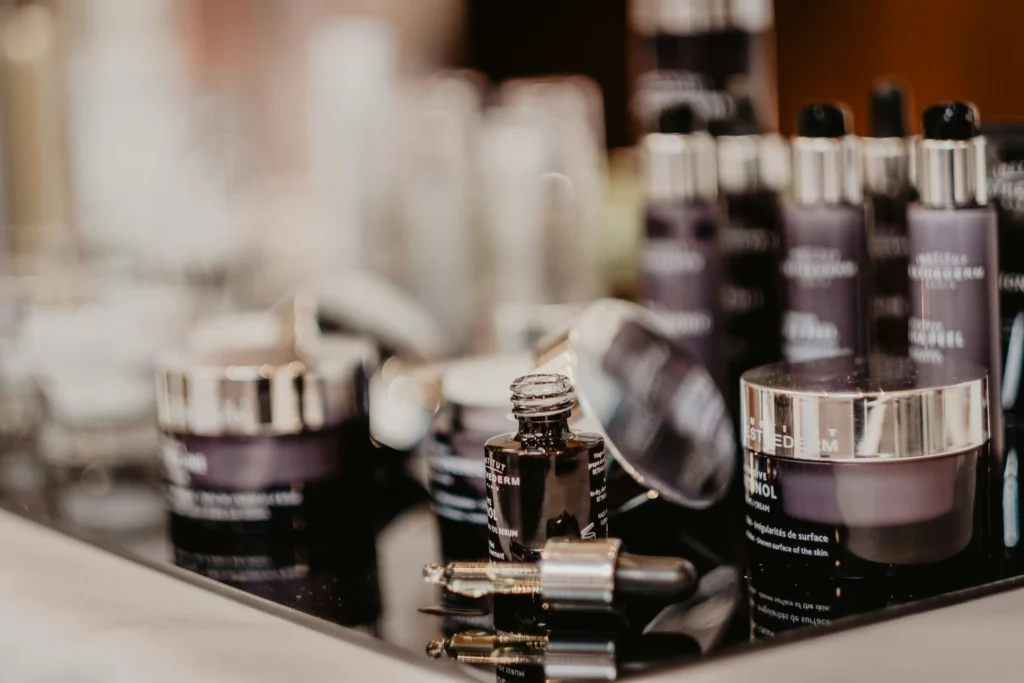
2. Luxury Organic Soap Business
Why this works: Handmade organic soaps with essential oils and botanicals are both functional and gift-worthy.
Steps to start:
- Learn soap-making (cold process or melt-and-pour).
- Invest in molds for unique shapes.
- Add luxury touches like gold leaf or floral embeds.
- Sell online, at farmers’ markets, or through subscription boxes.
Startup costs: $1,000–$3,000.
Monetization: Retail sales, gift sets, B2B (hotels/spas).
Case study: A small Etsy shop scaling into wholesale contracts with boutique hotels.
3. Organic Skincare Subscription Boxes
Why this works: Subscription boxes create recurring income and allow for upselling.
Steps to start:
- Partner with small organic skincare makers.
- Curate themes (e.g., “Winter Hydration” or “Summer Glow”).
- Use eco-friendly packaging.
- Offer monthly or quarterly boxes.
Startup costs: $2,500–$6,000 (inventory, packaging, website).
Challenge: High logistics and shipping costs.
Solution: Start local and scale gradually.
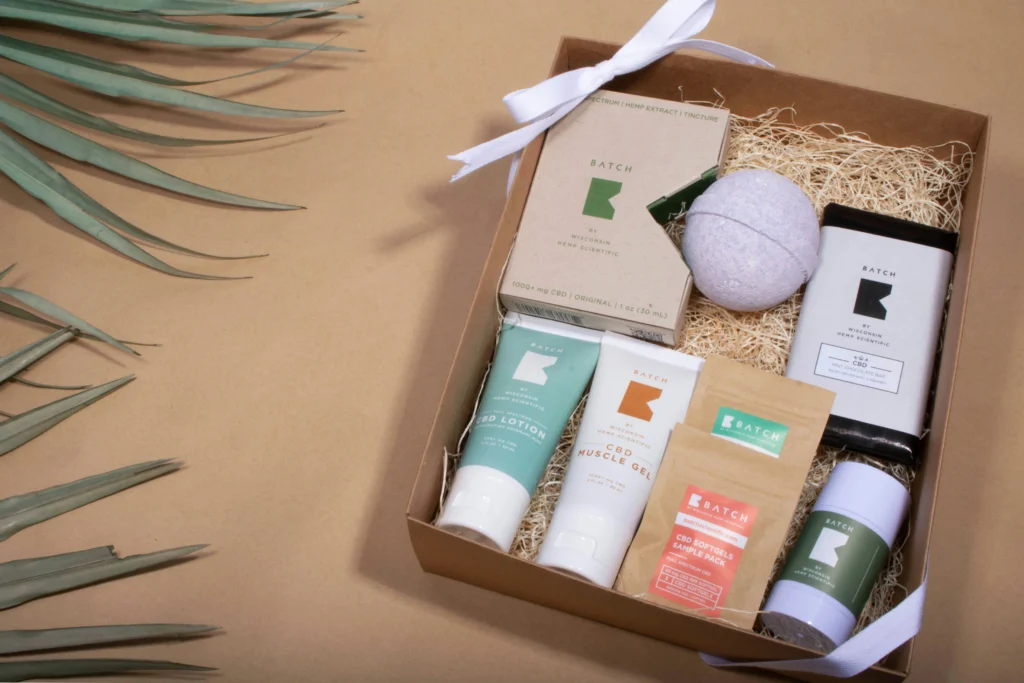
4. Herbal Facial Steam Kits
Why this works: A unique self-care ritual with herbs like chamomile, lavender, and calendula.
Steps to start:
- Source organic dried herbs.
- Package in compostable pouches.
- Offer guides for at-home spa use.
Startup costs: $500–$1,500.
Monetization: Online sales, bundles with other skincare products.
5. Organic Skincare Spa
Why this works: A physical location where luxury meets organic wellness.
Steps to start:
- Partner with certified estheticians.
- Offer organic facials, body wraps, and scrubs.
- Sell retail products to clients post-treatment.
Startup costs: $50,000–$200,000 (depending on size).
Monetization: Services, memberships, retail add-ons.
Challenge: High overhead costs.
Solution: Start with a home-based treatment studio.
6. Ayurvedic Skincare Products
Why this works: Ayurveda emphasizes natural, holistic wellness. Many people are curious about traditional remedies.
Steps to start:
- Research Ayurvedic herbs like neem, turmeric, and sandalwood.
- Work with certified formulators to meet regulations.
- Brand your products as heritage-inspired luxury.
Startup costs: $4,000–$10,000.
Monetization: Direct sales, partnerships with wellness spas.
Challenge: Regulatory hurdles.
Solution: Partner with certified labs to ensure compliance.
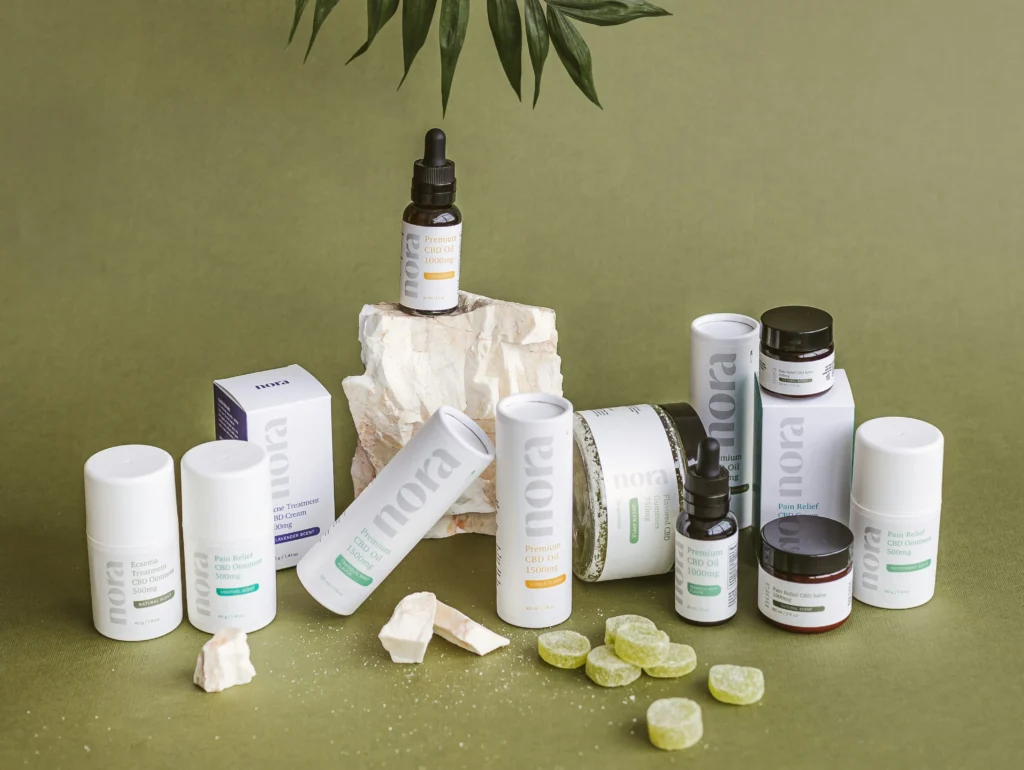
7. Organic Men’s Grooming Line
Why this works: Men’s skincare is a growing segment, especially when framed as simple, natural, and premium.
Steps to start:
- Focus on essentials like shaving creams, beard oils, and face washes.
- Highlight natural ingredients and masculine branding.
- Market through influencers in men’s lifestyle spaces.
Startup costs: $3,000–$8,000.
Monetization: Online sales, subscription refills, barber shop partnerships.
Case study: A small grooming brand that gained traction through Instagram ads targeting men aged 25–40.
8. Luxury Organic Face Masks
Why this works: Face masks are popular for self-care rituals and can command premium prices.
Steps to start:
- Offer powdered clay masks or ready-to-use gels.
- Use ingredients like matcha, charcoal, or rose clay.
- Design elegant jars and applicator brushes.
Startup costs: $2,500–$6,000.
Monetization: Direct sales, spa partnerships, bundles.
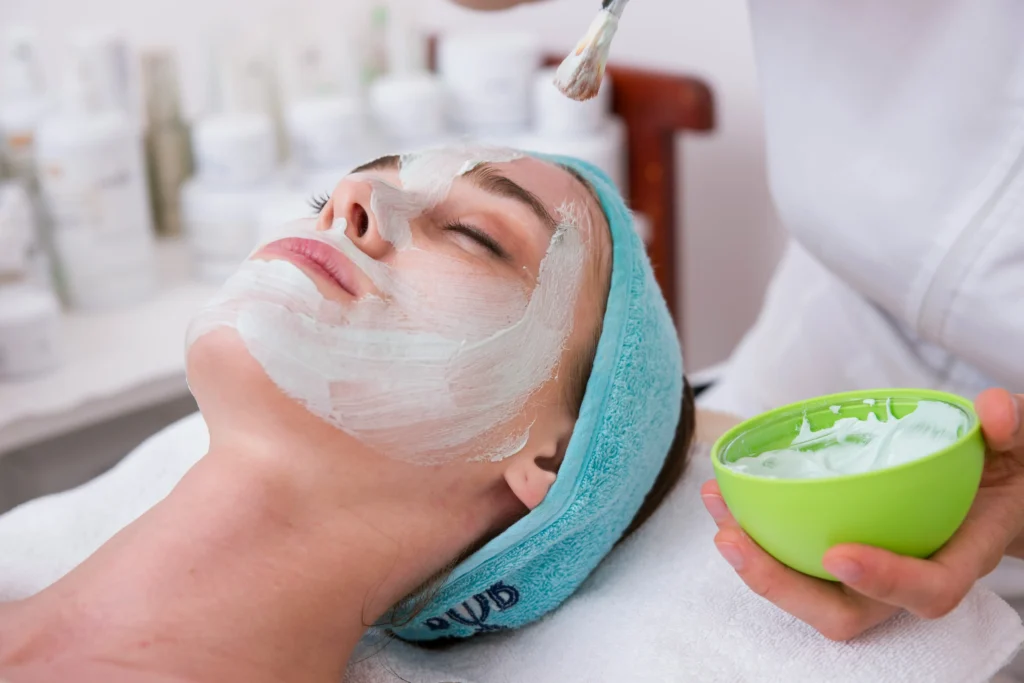
9. Organic Skincare for Sensitive Skin
Why this works: Sensitive-skin-friendly products build trust and loyalty, especially with allergy-conscious customers.
Steps to start:
- Avoid fragrances and harsh oils.
- Focus on hypoallergenic certifications.
- Market with clear “gentle and safe” branding.
Startup costs: $5,000–$12,000.
Challenge: High testing and certification costs.
Solution: Start with one flagship product before expanding.
10. Baby-Safe Organic Skincare Products
Why this works: Parents are extra cautious with baby products, making them willing to pay more for safety.
Steps to start:
- Create lotions, diaper balms, and soaps with minimal ingredients.
- Emphasize certifications like USDA organic.
- Partner with parenting bloggers for marketing.
Startup costs: $5,000–$15,000.
Monetization: Online shops, baby boutiques, subscription refills.
Case study: A small mother-owned business scaling through word-of-mouth in parenting communities.
11. Organic Sunscreen Products
Description: Natural, non-toxic sunscreens with plant-based ingredients cater to health-conscious consumers.
Insights: Sun protection is a year-round need, and demand for chemical-free options is growing.
Step-by-Step Guide:
- Research safe natural UV-blocking ingredients (zinc oxide, titanium dioxide).
- Create small test batches for SPF validation.
- Design eco-friendly, travel-friendly packaging.
- Promote via wellness blogs, influencer collaborations, and local markets.
Challenges: SPF testing can be costly. Solution: start with low-risk batches and partner with labs for testing as you scale.
Estimated Startup Costs: $1,000–$5,000.
Monetization: Direct sales, online store, subscription bundles.
Case Study: A small indie brand gained traction on Instagram by emphasizing reef-safe, chemical-free sunscreens.
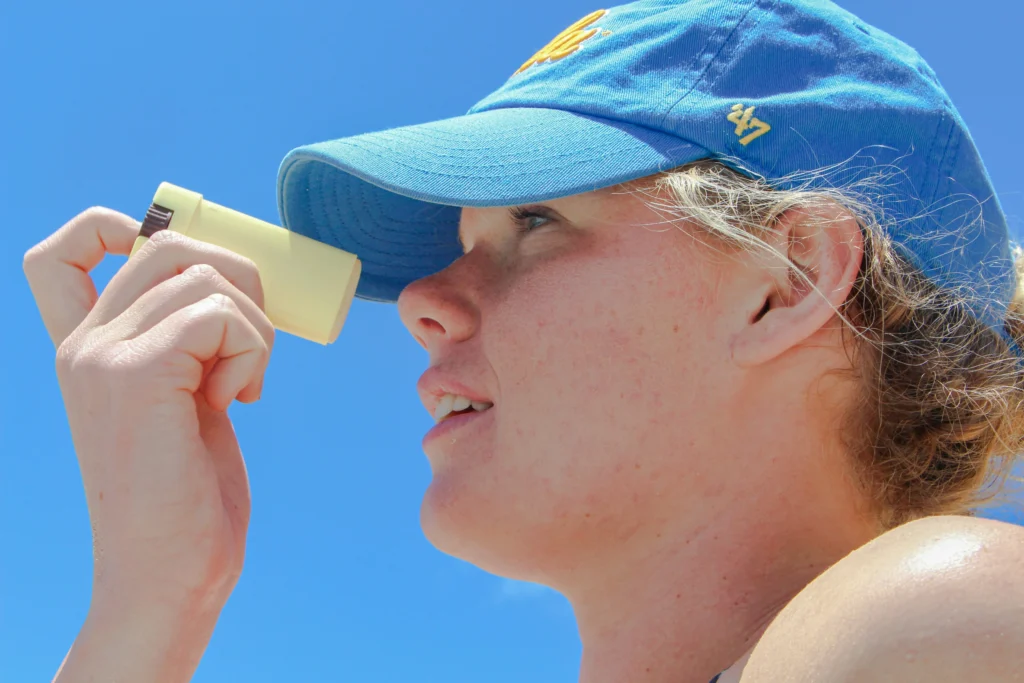
12. Organic Anti-Aging Line
Why this works: Anti-aging is one of the most profitable skincare segments. Adding “organic” makes it even more appealing.
Steps to start:
- Focus on natural ingredients like bakuchiol or rosehip.
- Create a system: serum, cream, eye treatment.
- Brand as luxury with clinical-style packaging.
Startup costs: $10,000–$25,000.
Challenge: High competition.
Solution: Narrow niche (e.g., “organic anti-aging for women over 50”).
13. Organic Skincare Workshops & Classes
Why this works: Many people want to learn how to make their own skincare at home.
Steps to start:
- Offer workshops locally or online.
- Teach basics like soap-making or DIY masks.
- Sell starter kits alongside classes.
Startup costs: $500–$2,000.
Monetization: Ticket sales, product upsells, recorded courses.
14. Organic Skincare Affiliate Store
Why this works: If you’re not ready to make products, you can still earn through affiliate marketing.
Steps to start:
- Build a blog or YouTube channel.
- Review and recommend organic skincare products.
- Use affiliate links to earn commissions.
Startup costs: $100–$500 (website and content tools).
Monetization: Affiliate income, sponsored content, ad revenue.
15. Spa Retreat Packages
Description: Luxury retreats featuring organic skincare treatments and wellness experiences.
Insights: Consumers increasingly pay for holistic experiences combining relaxation and self-care.
Step-by-Step Guide:
- Partner with spas or wellness centers.
- Design a package including facials, body treatments, and workshops.
- Offer personalized product kits for attendees.
Challenges: High upfront costs and logistics. Solution: start with small weekend retreats and scale gradually.
Estimated Startup Costs: $5,000–$20,000 (venue, materials, marketing).
Monetization: Retreat fees, product sales, repeat clients.
Case Study: A boutique retreat in Bali became a go-to destination for eco-conscious wellness travelers.
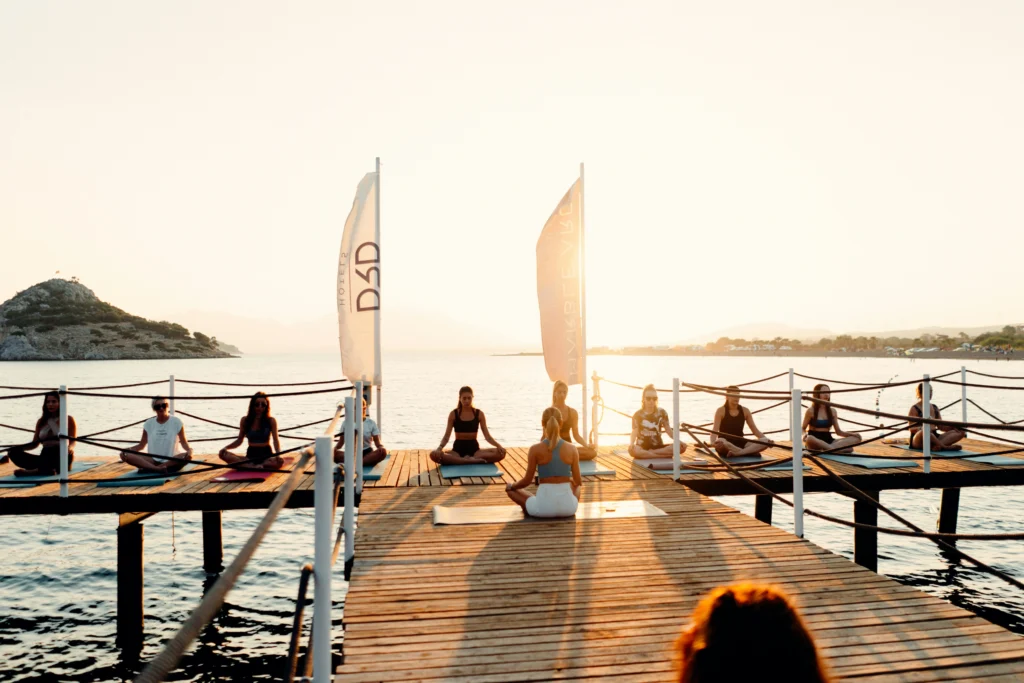
16. Organic Skincare Pop-Up Shops
Why this works: Pop-ups bring products to life with hands-on experiences.
Steps to start:
- Rent short-term spaces in malls or markets.
- Showcase product demos and samples.
- Use pop-ups to drive online traffic.
Startup costs: $2,000–$10,000.
Monetization: Direct sales, email list building, collaborations.
17. Organic Skincare for Specific Skin Tones
Why this works: There’s demand for products tailored to diverse skin tones.
Steps to start:
- Research unique needs (e.g., hyperpigmentation).
- Partner with dermatologists for credibility.
- Market inclusivity as a brand value.
Startup costs: $8,000–$20,000.
Monetization: Online sales, partnerships with beauty influencers.
18. Natural Perfumes
Description: Handcrafted, organic perfumes using essential oils and botanical extracts.
Insights: Perfumes are high-value luxury items; customers appreciate natural alternatives to synthetic fragrances.
Step-by-Step Guide:
- Learn fragrance blending and essential oil safety.
- Experiment with signature scents and small-batch production.
- Market as premium, eco-conscious, and unique.
Challenges: Skin sensitivities. Solution: offer sample sizes and clear ingredient labeling.
Estimated Startup Costs: $500–$2,500.
Monetization: Direct sales, online boutique, subscription fragrance clubs.
Case Study: A French artisan gained loyal customers by emphasizing unique, natural scents and elegant packaging.
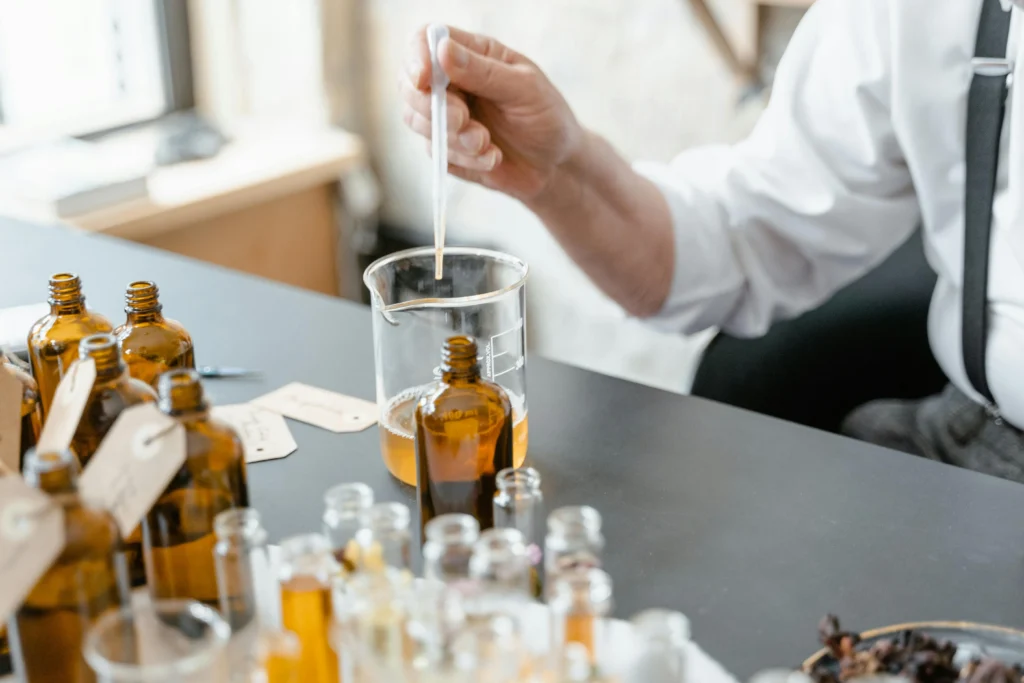
19. Skincare & Wellness Retreats
Why this works: High-ticket experiences combining travel, skincare, and wellness.
Steps to start:
- Partner with resorts or boutique hotels.
- Offer organic facials, yoga, and healthy dining.
- Market as luxury weekend getaways.
Startup costs: $20,000–$50,000 (depending on scale).
Monetization: Retreat packages, upselling products.
20. White-Label Organic Skincare Manufacturing
Why this works: Many entrepreneurs want to sell skincare but don’t want to formulate.
Steps to start:
- Create ready-made organic formulas.
- Offer custom labeling for small businesses.
- Market as a B2B service.
Startup costs: $30,000–$100,000.
Challenge: High initial investment.
Solution: Start with a small catalog and expand gradually.
21. Organic Skincare Influencer/Content Creator Path
Why this works: With growing interest, content creators can build authority and monetize.
Steps to start:
- Share skincare routines, reviews, and tutorials.
- Grow a following on Instagram, TikTok, or YouTube.
- Monetize with affiliate links, sponsorships, and your own product line.
Startup costs: $200–$1,000 (camera, lighting, website).
Monetization: Ad revenue, affiliate links, product sales.
From what I’ve seen, the organic skincare industry is thriving not just because it’s about beauty, but because it’s about values—health, safety, and sustainability. The ideas we’ve explored in 20+ Luxurious Business Ideas for the Organic Skincare Niche show that whether you start small with handmade soaps or aim big with retreats and spas, there’s a path for every budget and personality.
The important thing is to begin where you are. Maybe you test a single serum recipe, host a small workshop, or launch a simple affiliate site. Over time, you can grow into something larger. Remember, every journey starts small, and consistency matters more than speed.
If this post sparked an idea for you, take one step today—write down your concept, research suppliers, or explore local markets. And if you’d like more inspiration, don’t forget to check other guides here on Nichejar.com.
Success may take time, but with humility, persistence, and learning along the way, you can create something both profitable and meaningful.
TLDR
In short:
- Organic serums and soaps are profitable entry points.
- Subscription boxes and travel kits build recurring revenue.
- Men’s grooming and baby-safe products target underserved niches.
- Workshops, affiliate stores, or influencer paths offer low-cost online opportunities.
- Luxury spas, retreats, and white-label manufacturing are high-investment but high-reward ideas.
